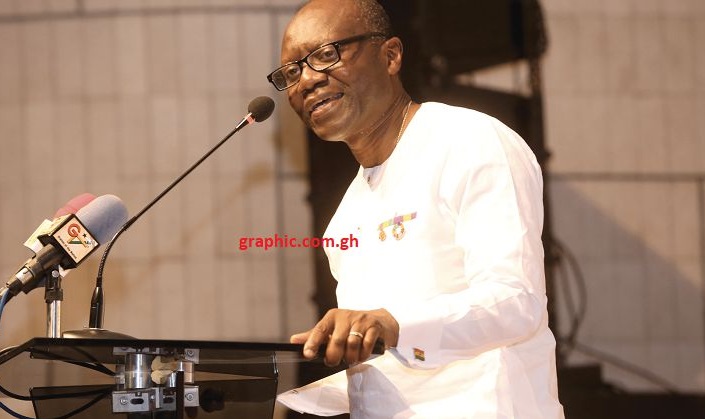The government has resolved to undertake a number of key reforms and implement critical measures in the next 15-months as part of renewed efforts to address the weak fundamentals of the economy.
Key among the reforms is the move to put systems in place to enhance revenue collection through compliance measures meant to bring public finances back to a sustainable path, while growing the real sector of the economy, especially agriculture.
In response to calls from various sources, including economic experts and civil society organisations (CSOs) on the government to check its expenditures, the Finance Minister, Ken Ofori-Atta, told Parliament yesterday that the government would also implement the necessary structural reforms to strengthen expenditure commitment control, avoid arrears accumulation and protect the public purse.
The pledge comes at a time when the country is targeting an external debt relief of US$10.5 billion between 2023-2026 as it engages external creditors who include both bilateral and commercial creditors.
This component of the debt restructuring activities is very critical to the International Monetary Fund (IMF) programme which seeks to bring the country’s debt to sustainable levels.
Under the IMF programme, the country is expected to reduce its debt to GDP ratio to 55 per cent by 2028, a commitment experts have described as overly ambitious but which the government is determined to achieve.
The government also intends to strengthen state owned enterprises (SOE) governance; review statutory Funds and ensure improved alignment with key priorities.
Other measures
Laying the 2023 mid-year budget review before the House, the Finance Minister also hinted of the government’s resolve to address the energy sector challenges, a critical issue which is threatening the continuous supply of electricity, in a move to avert power outages.
In the roads sector, which is also a major source of concern for all, he said the government was keen to implement the Accelerated Community Roads Improvement Phase II to expand motorability and improve road networks nationwide.
Systemic weaknesses
Having been badly exposed by the twin global events of COVID-19 and the raging Russian/Ukraine war, Mr Ofori-Atta further pointed to major fundamental and systemic weaknesses that the government intended to address.
“While most countries are still going through difficulties due to what is happening globally, our economic crisis also emanates from fundamental and systemic weaknesses that we must boldly confront”, he said.
The finance minister mentioned some of the critical areas to watch as the low revenue to gross domestic product (GDP) ratio; high demand and dependence on imports, including food products that could easily be produced within; and the inefficient power management.
He also mentioned the lack of robust expenditure and commitment control systems to secure the nation an efficient public service delivery; address the numerous statutory funds with expenditure and economic governance issues; as well as address the weak SOE governance.
Mr Speaker, “what I have outlined today begins a strong effort on the part of government to address these issues. Most of the structural reforms we proposed in the Post COVID-19 Programme for Economic Growth (PC-PEG), with which we secured an IMF programme, are geared towards addressing these fundamental issues,” he said.
Oil revenues
Mr Ofori-Attah said “Mr Speaker, for the first six months of the year, we continue to make progress to exceed our non-oil revenue targets for the year.
We have seen improvements in non-oil tax revenue collection, despite some noticeable shortfalls in VAT,” he said.
However, in spite of this feat, he said oil revenues had fallen short of expectations due to changes in global prices.
Consequently, he said the government would, therefore, undertake a downward review of the oil-related revenue as well as the corresponding expenditures to align with the underperformance of some of the country’s revenue handles.
Specifically, this will impact the Annual Budget Funding Amount (ABFA).
“Mr Speaker, in view of the reason outlined above, as well as the lower domestic interest payment and amortisation, following the completion of a part of the Domestic Debt Exchange Programme (DDEP), and the reduction in the foreign financed Capital Expenditure (CAPEX), the appropriation has been revised from GH¢227.7 billion, as presented and approved in November 2022, to GH¢206.0 billion,” he said.
